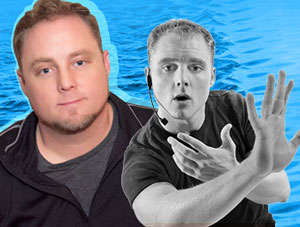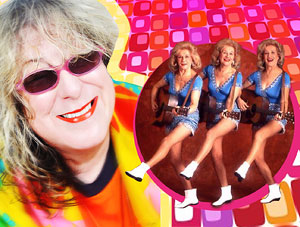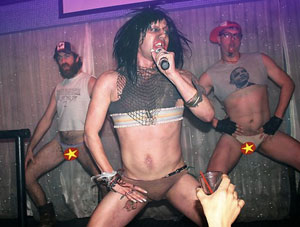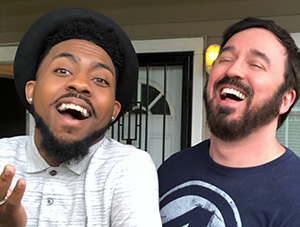FOF #1344 – Dating in the Digital Apocalypse
Premium Content
You need to be a Feast of Fun Plus+ member to access this.
Join now
or Log in – it's easy!

Today our friend Michael Titus Parkes, app designer and performance artist, walks us down the memory lane of the Internet and gives us an in-depth look at how the rapidly changing digital world is effects us and our relationships.
Listen as we talk about how YouTube is the new performance art scene and the five type of photos you need to make a sexy connection online.
 FOF #1345 – The Queen Of Kitsch – 03.21.11
FOF #1345 – The Queen Of Kitsch – 03.21.11 FOF #1343 – Pee Wee Herman is Back! – 03.14.11
FOF #1343 – Pee Wee Herman is Back! – 03.14.11 FOF #1342 – Christeene is the Queen of Trash – 03.10.11
FOF #1342 – Christeene is the Queen of Trash – 03.10.11 FOF #2623 – The Duke of Soul – 06.31.18
FOF #2623 – The Duke of Soul – 06.31.18
Comments
Hi Fausto and Mark, i agree that YouTube has become a huge new tool for performance artists! Great interview with Michael Titus Parkes! huggz – Dagberto
I like Michael’s ideas about new technology’s ability to satisfy a need for immediacy bringing people together. It’s a very optimistic spin on things. Although, how many boys do you see staring at their phones instead of engaging each other when you go to a bar?
I’m also really interested in the idea that there may be a backlash against social media. People may want to disconnect some day, especially given how certain companies like Facebook abuse their users’ privacy. If you look at the anti-materialism of the 60s and 70s as a collective response to the 40s and 50s unabashed consumerism, I wouldn’t be surprised if something similar happens a decade from now in terms of moving away from online socializing. (I’m on month 3 without Facebook and I couldn’t be happier.)
Also Fausto- Right on with your comment about advertisers. I’m getting my MBA in ad/pr and your point about what advertisers want vs. need is something that keeps coming up (or at least, I’ve tried to bring up). A lot of people in advertising – and marketing especially – just do not seem to understand your point about the importance of building a strong base. My impression is too many marketers get their hands into the advertising side of things and both groups end up using a myopic norm-reliant view to create “experiences” for their audiences to connect with. They should (also) be making effective product promises and connecting to groups like gays and African Americans, who have incredibly buying power and loyalist potential. When you start looking at the problems within the industry across the board in terms of ignoring consumer populations and sticking to limited “brand stories,” I actually find it incredibly depressing.